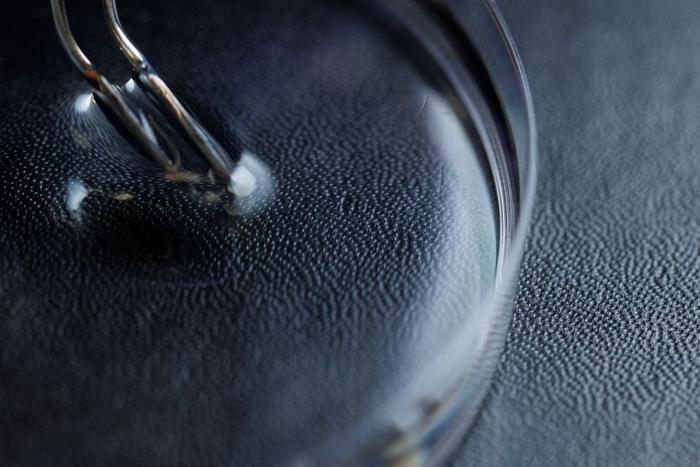Engineered Human Therapies
Tiny Brains, Big Breakthrough: ‘Mini-Brain' Innovation Could Revolutionize Alzheimer’s Treatment
A USask researcher’s innovative mini-brains, grown from blood-derived stem cells, could revolutionize how we diagnose and treat neurological diseases
May 14, 2024
In an audacious new venture, Dr. Tyler Wenzel, a researcher at the University of Saskatchewan (USask), is creating miniature versions of human brains from stem cells, potentially revolutionizing Alzheimer’s diagnosis and treatment.
“When we first dreamed up this idea, we never imagined it would work this well,” Wenzel recalls. His miniature brains, or “mini-brains,” could transform how brain diseases are approached. “These could be used as a diagnostic tool, built from blood,” he explained.

Wenzel, a postdoctoral fellow in the Department of Psychiatry, developed this one-of-a-kind cerebral organoid model under Dr. Darrell Mousseau’s guidance. Stem cells, capable of developing into nearly any cell type, were used to construct these mini-brains. Taken from human blood, the stem cells form a tiny artificial organ about three millimeters across, resembling, as Wenzel describes, a piece of chewed gum someone tried to smooth out again.
Creating functioning brain cells from these stem cells is not new, but Wenzel’s mini-brains are unique. Unlike typical brain organoids composed mainly of neurons, Wenzel’s models include four different types of brain cells, as detailed in his recent publication in Frontiers of Cellular Neuroscience. This diversity makes them more accurate reflections of adult human brains, essential for studying conditions like Alzheimer’s.
For instance, when mini-brains were made from stem cells of individuals with Alzheimer’s, they displayed Alzheimer’s pathology on a smaller scale. “If stem cells can become any cell in the body, why not create something that resembles an entire organ?” Wenzel pondered. His theory proved correct: “If a patient had Alzheimer’s and we grew their mini-brain, that tiny brain would have Alzheimer’s.”
This groundbreaking technology, supported by the Alzheimer Society of Canada, could potentially transform the landscape of Alzheimer’s care, particularly in remote areas. Imagine a future where diagnosing and treating neurological conditions is as simple as a blood test, easily shipped and with a long shelf life. This could not only save resources but also significantly reduce the burden on patients. “In theory, we could get a blood sample from La Loche or La Ronge to the university and diagnose you like that,” Wenzel envisions.
With promising early results, Wenzel is now planning to test the mini-brains on a larger patient pool. The potential for broader applications is immense. If the mini-brains can accurately model other brain diseases, they could potentially speed up diagnoses or test drug efficacy. Wenzel points to the long wait times for psychiatric care in Saskatchewan. If mini-brains could identify the most effective antidepressant for a patient, it could significantly reduce the time to receive treatment.
Wenzel’s transition from high school science teacher to researcher highlights his passion for discovery. The success of the mini-brains has been so profound that even he struggles to comprehend it fully. “I’m still in disbelief, but it’s extremely motivating,” he admitted. “This could impact society, create change, and shift the landscape of medicine.”


















